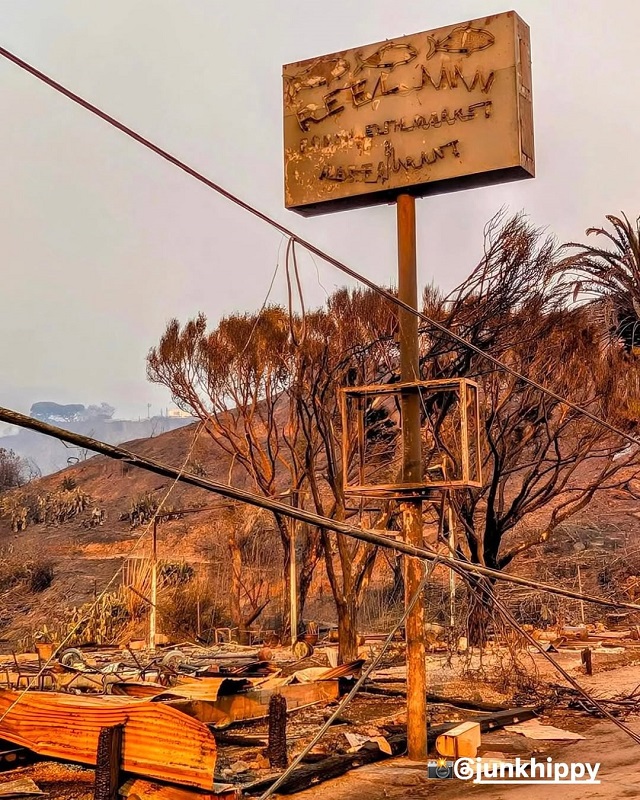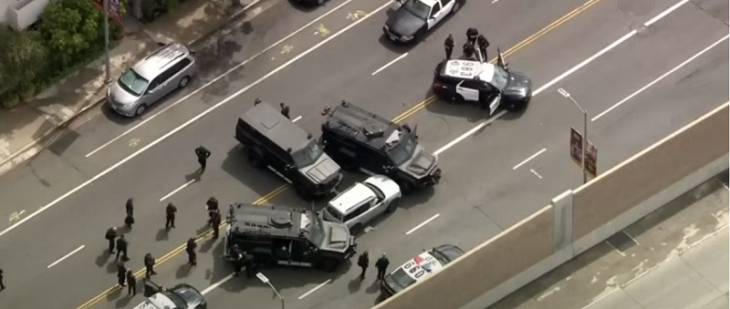The union representing Los Angeles police officers lashed out Wednesday at a decision by the state Parole Board to release a man who helped plan the 1985 Halloween murder of an LAPD detective who was ambushed while picking up his 6-year-old son.
Voltaire Alphonse Williams was convicted in 1989 of conspiracy in the plot to kill 42-year-old Los Angeles police Detective Thomas Williams, who was not related to him. He was acquitted of a first-degree murder charge.
“If you murder a police officer, you should go to prison for the rest of your life,” according to the Los Angeles Police Protective League. “It is outrageous that the Parole Board has again granted parole to Voltaire Williams, who helped orchestrate the murder of LAPD Detective Thomas Williams in front of his son.”
Williams, then 25 years old, was sentenced in April 1989 to 25 years to life in prison.
Daniel Jenkins, the gunman who sprayed machine gun fire at the detective outside his son’s Canoga Park day care center, was sentenced in 1988 to death. Another accomplice, Ruben Moss, was sentenced to life in prison without the possibility of parole.
The three men plotted to kill the detective out of revenge for his testimony against Jenkins in a robbery case. A series of other would-be gunmen were solicited to murder the detective even before he testified, and several backed out before Jenkins took matters into his own hands, according to court documents.
In October, a state parole panel recommended that Voltaire Williams be released. Gov. Jerry Brown — who did not have the authority to unilaterally overturn the decision, as he does for inmates convicted of murder — sent the case back to the full Board of Parole Hearings, along with a letter saying he opposes Williams’ release.
On Tuesday, the board rejected Brown’s plea and upheld the decision to grant Williams parole. According to the state Department of Corrections and Rehabilitation, the board’s order will likely be received by officials at State Prison Solano on Thursday, and inmates are typically released “to parole supervision” within five days of that letter being received.
The department does not release information on the exact date or location of an inmate’s release.
Williams was also recommended for parole in 2015 by a parole panel, and Brown also referred that case back to the full Board of Parole Hearings, which decided at that time not to release him.
The LAPPL blasted the board’s latest decision to release Williams, calling it “an affront to every peace officer who risks their lives to protect others on a daily basis.”
“Voltaire Williams has no compassion for Detective Williams’ family and colleagues. He does not deserve freedom,” according to the union.
In his letter to the parole board, Brown acknowledged efforts made by Williams, now 54, to “improve himself” while in prison, including obtaining his GED, earning vocational certifications and receiving positive work ratings while participating in self-help programs. But the governor called the detective’s killing a “cold-blooded and cowardly crime.”
“Clearly, Mr. Williams has additional work to do to understand more fully the impact and legacy of this crime,” Brown wrote. “It is a testament to the life and work of Detective Williams and a demonstration of the enduring consequences this crime had on the community that even 30 years after his murder, over 800 individuals have written to oppose Mr. Williams’ release from prison.”
Michele Hanisee, president of the Association of Los Angeles Deputy District Attorneys, also blasted the board’s decision to release Williams, saying the panel is “determined to release life-sentence inmates regardless of their dangerousness to society.”
“Inmate Williams was supposed to shoot Detective Williams himself,” Hanisee said. “When the person who had hired him decided to commit the murder on his own, Williams chose not to inform authorities.
… It is clear that in their (parole board members’) minds, when an inmate has served a certain portion of their sentence they should be released, and any future harm they cause can be dealt with via a new prosecution. A rubber stamp could hardly do worse.”


























